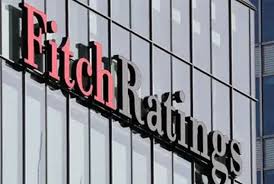Global credit rating agency Fitch Ratings has raised red flags over Ghana’s recent economic trajectory, cautioning that the country risks a possible downgrade if it fails to reopen its local-currency bond market.
This warning comes just weeks after Fitch upgraded Ghana’s credit rating to ‘B-’ with a stable outlook, a move that reflected some degree of macroeconomic stability following the country’s debt restructuring under the International Monetary Fund (IMF) programme.
According to Fitch, the sustainability of Ghana’s improved rating hinges heavily on the government’s ability to refinance its short- to medium-term maturities through the local bond market.
“A failure to re-open the local-currency bond market could significantly erode investor confidence in the government’s ability to meet its debt obligations,” Fitch stated, adding that such a scenario could trigger renewed liquidity pressures.
The bond market in Ghana has remained largely inactive since the Domestic Debt Exchange Programme (DDEP) in early 2023, which saw domestic creditors take significant haircuts as part of a broader debt restructuring initiative. While the government is exploring alternative financing options, Fitch says that a functional and active domestic bond market is crucial to reducing rollover risks and ensuring adequate fiscal liquidity.
Liquidity
Beyond the bond market, Fitch also highlighted other downside risks to Ghana’s rating.
These include the potential materialisation of contingent liabilities, slower fiscal consolidation than planned, and dwindling international reserves. Any of these factors, if they occur in isolation or in combination, could lead to negative rating action.
“Renewed liquidity pressures could emerge from larger-than-expected budget deficits or off-budget liabilities that would undermine the sovereign’s ability to honour its debt commitments.”
The country has made some progress under the IMF’s Extended Credit Facility (ECF), including trimming the fiscal deficit and rebuilding confidence in macroeconomic management.
However, Fitch asserts that these gains must be sustained and deepened, especially through a credible medium-term fiscal consolidation strategy.
External
Fitch’s report also pointed to Ghana’s vulnerability to external shocks, particularly through the balance of payments. It cited the risk of a fall in international reserves stemming from current account deficits or a reduction in external financial inflows.
With global commodity prices experiencing fluctuations and Ghana being heavily dependent on gold, cocoa, and oil exports, any downturn in external revenues could undermine reserve accumulation efforts.
A failure to rebuild reserves to levels closer to the median for ‘B’-rated countries would signal macroeconomic instability and could dent investor confidence, Fitch emphasized.
Metrics
Fitch affirmed Ghana’s Country Ceiling at ‘B-’, which is in line with its Long-Term Foreign Currency Issuer Default Rating (IDR). The Country Ceiling reflects the risk that the government could impose capital or exchange rate controls that would impede the private sector’s ability to convert local currency into foreign currency for debt servicing.
In Ghana’s case, Fitch sees no material constraints that would warrant a divergence between the Country Ceiling and the IDR.
In terms of Environmental, Social, and Governance (ESG) indicators, Ghana scored a ‘5’ for Political Stability and Rights, which Fitch noted negatively impacts the country’s credit profile.
The nation also received a ‘4’ score for Creditor Rights, indicating that Ghana’s willingness to repay its obligations remains a core driver of its sovereign rating.
To maintain its current rating and potentially achieve further upgrades, Fitch recommends that Ghana sustain a decline in debt-to-GDP ratios and accumulate international reserves. These developments, coupled with a successful reopening of the domestic bond market, would demonstrate fiscal resilience and strengthen the sovereign’s creditworthiness.


Comments are closed.